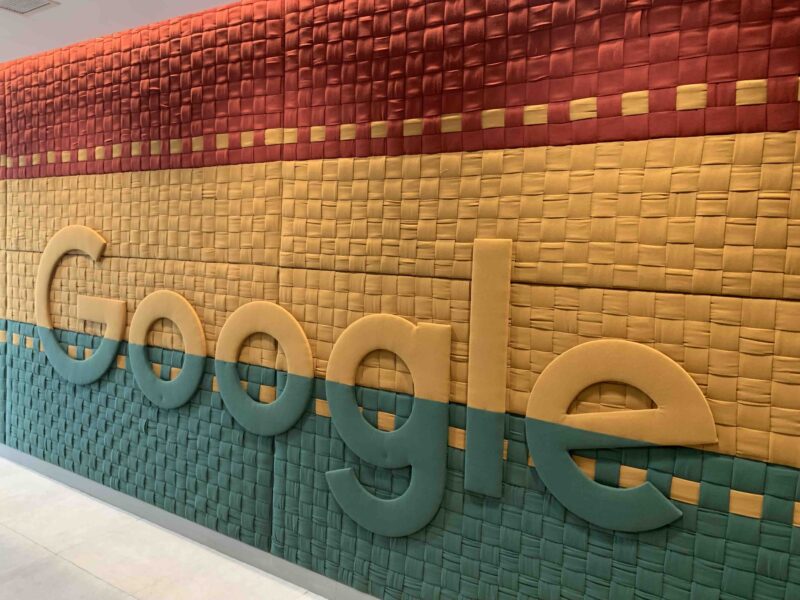African governments now have a definitive roadmap needed to modernise their public sector and future-proof their workforce with the launch of Google’s comprehensive AI Skilling Blueprint earlier today.
This new policy framework is specifically designed to assist nations in navigating the complexities of closing the critical technology skills gap and driving innovation across key economic sectors.
According to Google, the AI Skilling Blueprint for Africa was designed as a practical extension of the earlier AI Sprinters initiative, outlining a hands-on strategy for African governments to develop and deploy comprehensive, nation-wide AI training schemes.
The objective is to ensure that all citizens are fully equipped with the necessary training to participate in and benefit from the emerging AI-driven economy.
To realise this goal, the Blueprint prescribes targeted actions across three distinct competency levels first identified in AI Sprinters: AI Learners, which covers the general public and students; AI Implementers, targeting MSMEs, professionals, and public sector workforces, including policymakers and educators; and AI Innovators, focusing on advanced skills for entrepreneurs, developers, and researchers.
“Africa’s AI moment is now, and Google is committed to being a partner for the long haul. The AI Skilling Blueprint provides a clear roadmap for governments to build the workforce of the future. By also investing in AI-ready data and expert local organisations and partners, we are helping build the interconnected ecosystem needed for a prosperous, AI-driven future for the continent,” Doron Avni, Google’s Vice President of Government Affairs & Public Policy, said.
Read also: Google unveils Gemini 3, its most intelligent model yet

Google’s commitment to include data infrastructure, training support
As part of its broader initiatives, Google also announced $2.25 million to support projects building trustworthy public data sets for AI by the UN Economic Commission for Africa (UNECA), the UN Department of Economic and Social Affairs (UN DESA) and PARIS21.
This contribution will help national statistical offices modernise their infrastructure and empower decision-makers with the reliable data they need to address challenges from food security to economic growth.
“For Africa to drive sustainable development, evidence-based policymaking is indispensable. This requires accessible, reliable, and AI-ready data. This effort is a crucial step forward. By building a Regional Data Commons, we can empower African institutions with the data and tools they need to make strategic choices that will drive growth and prosperity,” Claver Gatete, Executive Secretary of the UN Economic Commission for Africa, said.
Building on its $7.5 million Google.org Skilling Fund commitment, Google also announced the first set of expert social impact organisations that will receive funding to execute on projects consistent with its skilling mission.
They include the FATE Foundation and the African Institute for Mathematical Sciences (AIMS), which will embed advanced AI curricula into universities; and JA Africa and CyberSafe Foundation, which will advance crucial work in online safety and digital literacy.


“We are incredibly proud to partner with the African Institute of Management Sciences on the Advanced AI Upskilling Project, with support from Google.org. This groundbreaking initiative is a direct response to the urgent need for deep AI competencies in Africa, empowering tertiary institutions, lecturers, and students in Nigeria, Ghana, Kenya, and South Africa,” Adenike Adeyemi, Executive Director, FATE Foundation, said.
She added that the strategic support aligns perfectly with FATE Foundation’s mission to foster innovation and sustainable economic growth across the continent, ensuring Africa is fully equipped to lead in the global technological future.
Addressing the impact of Google’s investments, Simi Nwogugu, President & CEO of Junior Achievement (JA) Africa, stated that the organisation’s mission is fundamentally driven by the rapid pace of technological change to ensure no African youth is left behind.
“As we engage our youth in more digital programs and encourage AI literacy, we are fully aware of the harmful effects of unchecked online exposure and, therefore, invest equally in protecting their data, physical safety and mental wellbeing. Through this support from Google.org, we will give young people the tools, knowledge, and confidence they need to navigate the digital world safely and responsibly,” she said.
Read also: Google to pay $40m to local South African media following anti-competition probe








